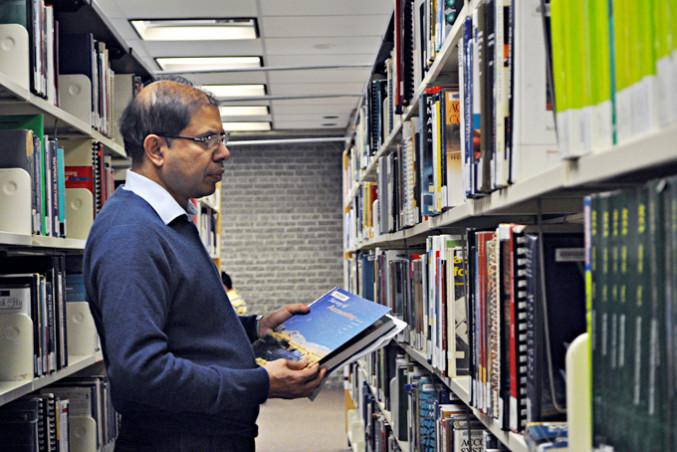By Melissa Myre
A new security system that will track library utilities, such as books and laptops, may soon be implemented at Ryerson’s library.
Radio Frequency Identification (RFID) labels can track these library items by using radio signals that come from a chip that is stuck to the inside of a book or a laptop.
If someone were to pick up a book, the chip would activate the tracking device and keep tabs on its exact location.
These technological tags were most commonly used to track livestock but have been recently used to track consumer products.
“RFID tags can be read faster and easier compared to regular book barcodes. It also offers fast inventory control and item tracking capacity,” said Weina Wang, Ryerson’s borrowing and lending services system librarian.
Currently, Ryerson’s library uses OneCards to keep tabs on borrowed books and technology.
This system is implemented by having students scan their cards at the library’s front desk.
“[The new tracking system] is a great technology for libraries since it offers significant time savings for both library staff and students,” Wang said.
The library’s course readings assistant, Sarah Pelletier, said that the new system will reduce the amount of thefts occurring in the library.
Forty-three thefts of borrowed laptops and books were reported to Ryerson security in the 2012–13 school year. Another 19 were reported last semester.
“We are all students trying to get by with what we have [available to us] — if you’re struggling, don’t make it so that someone else has to,” she said.
Asif Bin Zahir, a fourth-year commerce student, said RFIDs are not top-of-the-line, but are more effective than the OneCard system.
The new system would allow multiple barcodes to be read simultaneously, cutting down on the time required to check in and out borrowed items. The microchip would also be able to trigger an alarm if an item is taken from the library without being scanned at a check-out machine.
Though the system is still being planned, Wang stated the project would take a significant amount of funds and time.
“Libraries are moving towards electronic books and cloud computing, the budget is being weighed in all competing priorities,” Wang said.
With the OneCard system still in place, the RFID project continues to be planned.










Leave a Reply